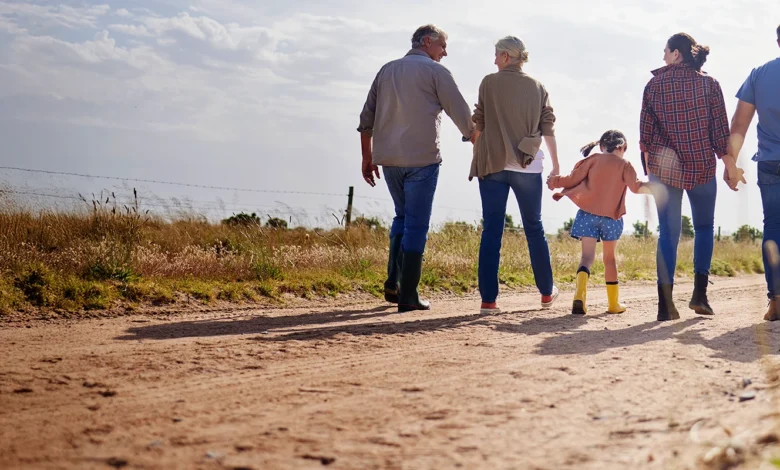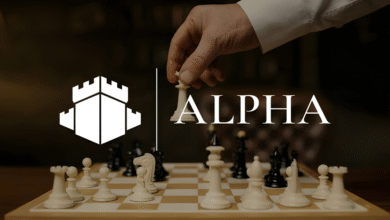How charitable giving strengthens your estate plan

Giving while living, and with intention
Charitable giving often comes up as an afterthought in estate planning. However, it’s an option that can be very fulfilling for what it represents.
When you give while you’re alive, you’re not only supporting the causes that matter to you — but there’s a sense of modeling generosity for your family. You retain control over how your gift is used. Whether you’re passionate about food security, environmental conservation, or building community infrastructure, giving directly allows you to shape the outcome.
Many families also underestimate how impactful giving can be. When done strategically, charitable giving can significantly reduce the tax burden on your estate. It can also allow you to keep the business intact while fulfilling other priorities, such as supporting local initiatives or contributing to a cause that aligns with your values.
There’s also a broader message at play, that money is a means, not an end. Charitable giving helps redirect your wealth toward impact, not just inheritance.
A real-life example of strategic giving without compromise can be seen in the actions of an Albertan family. When faced with estate planning and land-use challenges, they decided to take a different approach. Rather than sell a section of their land to developers, they chose to donate a portion of their non-farmable land to a conservation organization.
This decision helped preserve the ecological integrity of the property, offered tax relief, and, most importantly, didn’t disrupt the business. The land remained in use, however, a portion of it now served a long-term community benefit.
This type of ecological gift comes with specific tax advantages and allows the families to preserve land that may hold personal or environmental value. This demonstrates a critical point about how charitable giving doesn’t mean giving up the business. It’s about being strategic — using the assets you have in ways that reflect what matters most to you.
Rethinking inheritance: Too much, too soon?
A consideration that often comes up when thinking about inheritance, is the risk of giving too much, too soon. Inheriting significant wealth, especially without the experience or knowledge to manage it, can cause more harm than good in some cases. Concerns arise of potential reduced motivation, delays of career, or education paths, and may even create dependence on inherited capital.
That’s why many families choose to stagger inheritance, supplement it with charitable giving, or use trusts to delay access until certain conditions are met. Others choose to give more during their lifetime when they can guide and teach their heirs about financial responsibility, philanthropy, and business operations.
Giving is part of that teaching process, reinforcing the idea that wealth is a tool for impact — not just comfort. This helps eliminate the concern, especially for those who may not have been taught to manage, ensuring they won’t be overwhelmed when the time comes.
Estate planning is a family conversation
One of the most common sources of estate conflict is surprise. When heirs don’t know what’s coming, or why — resentment can build quickly. That’s why estate planning should be a conversation, not a secret.
Discuss your will with your family. Share your thinking, especially if charitable giving is part of the plan. Explain what you’re trying to achieve, and why. These conversations may not be easy, but they’re essential. They reduce misunderstandings, help manage expectations, and keep families connected through major transitions.
This transparency also offers a chance to pass down your values, not just your assets. If giving is part of your legacy, the best way to protect it is by involving your family in the process.
Using the right tools to build flexibility
Successful estate planning goes beyond minimizing taxes. It’s about protecting the business, supporting your heirs, and aligning your wealth with your values. A thoughtful strategy often relies on using the right tools in the right combination.
- Life insurance can create liquidity outside the business, providing funds for non-farming heirs without placing financial strain on the farm. Proceeds are tax-free and can be structured to deliver support at the right time.
- Trusts offer flexibility when succession isn’t yet clear. They allow families to delay decisions, distribute assets gradually, and respond to changing circumstances as children’s roles and goals become clearer.
- Charitable remainder trusts and foundations enable long-term giving, allowing you to support causes you care about while maintaining control over how donations are managed and distributed.
- Ecological gifting allows landowners to preserve environmentally significant land, protect its natural character and benefit from favourable tax treatment — all without compromising the business.
Each tool plays a distinct role. Together, they offer a flexible framework to preserve your operation, support your children and make a lasting impact in your community.
A legacy that lives on
The choices you make today will shape how your legacy lives on. Your estate plan is a chance to reinforce the values you’ve lived by, support the people you care about, and invest in the future of your land, your business, and your community.
Thoughtful giving, whether during your lifetime or through your estate, can ease tax burdens, reduce conflict, and leave a meaningful mark. It also gives you the chance to lead by example, showing your family what it means to use wealth with purpose.
Start the conversations early. Revisit your plans as life changes. When your intentions are clear and your priorities are shared, your legacy becomes more than a memory — it becomes a foundation the next generation can build on.
Source link




